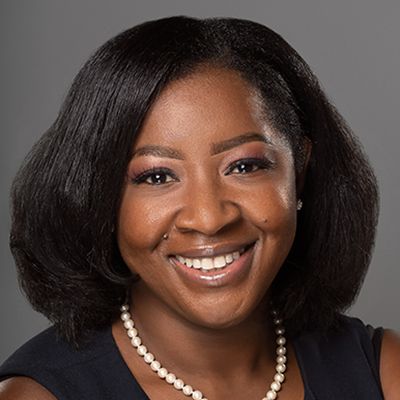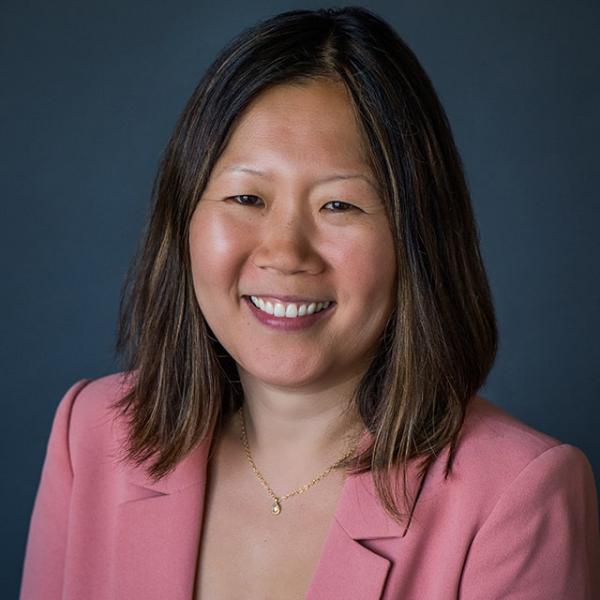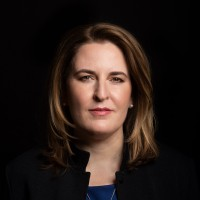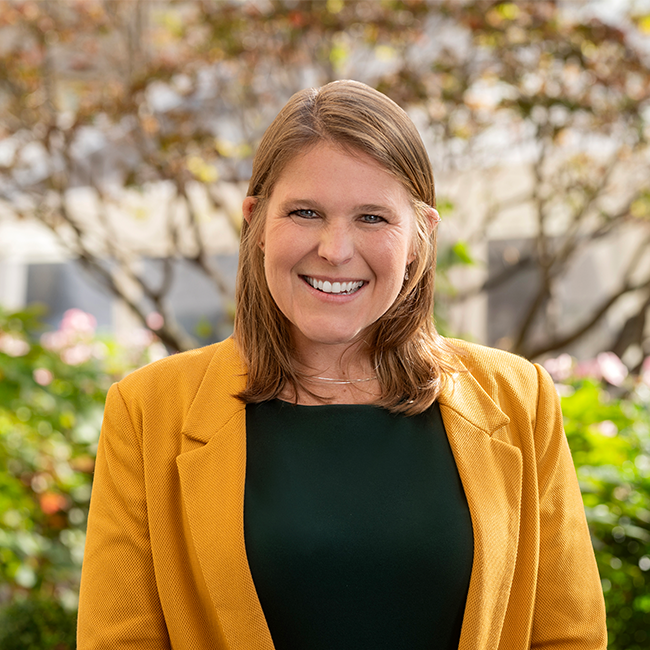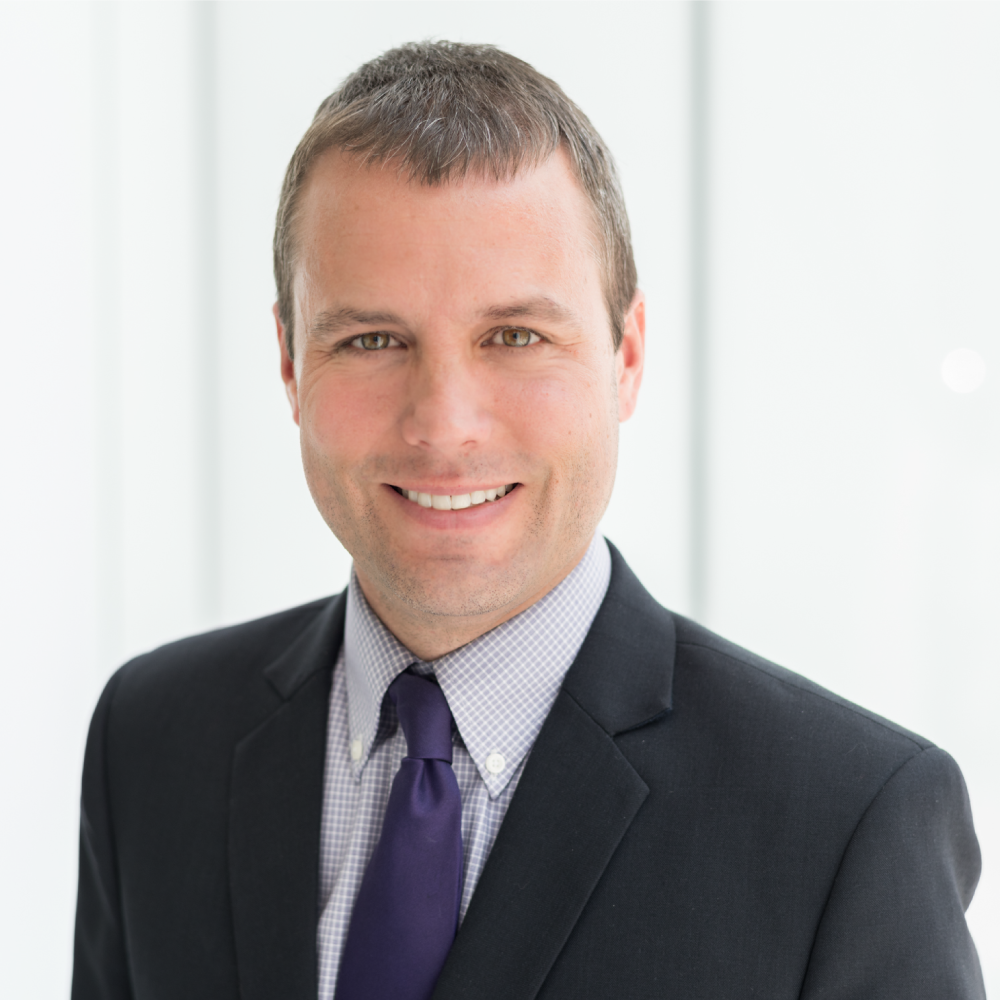
In This Issue:
Read Program Highlights
View our Latest Reports
Review Policy Update
Learn from Milken Institute Health Experts
Welcome New Milken Institute Health Staff
Join Us at Upcoming Events
Program Highlights
Milken Institute Health at the United Nations General Assembly
Leaders of Milken Institute Health participated in Milken Institute-hosted events and other partner convenings—summarized in this news release—around the 79th Session of the United Nations General Assembly (UNGA). In the lead-up to the Fourth High-Level Meeting of UNGA on Non-communicable Diseases in 2025, the Milken Institute hosted a session on “Beyond Borders: Advancing Global Health Access in a Changing World,” which focused on the critical need for partnership and collaboration, as well as innovative strategies for improving access to disease prevention, early detection, diagnosis, and treatment. Esther Krofah, executive vice president, Health, Milken Institute, moderated a fireside conversation with Vanessa Kerry, MD, co-founder and CEO of Seed Global Health and special envoy for climate change and health at the World Health Organization. Their discussion was followed by a panel of speakers, including Emily Kainne Dokubo, MD, deputy global AIDS coordinator for program quality, Bureau of Global Health Security and Diplomacy, US Department of State; Bience Gawanas, vice chair of the board, The Global Fund; Githinji Gitahi, MD, MBS, group CEO of Amref Health Africa; and Jenelle Krishnamoorthy, PhD, vice president, head of global public policy and international affairs, Merck.
Krofah also attended the UNGA High-Level Meeting on Antimicrobial Resistance (AMR) 2024, where world leaders addressed the threat AMR poses to global health, food security, and the achievement of the 2030 Sustainable Development Goals. FasterCures advocates sustainable financing of antibiotic development and sustainable private-sector investment and engagement. A 2022 report, Models for Financing Antibiotic Development to Address Antimicrobial Resistance, reinforced the need for governments to implement pull incentives—such as a subscription or similar revenue-guaranteeing model—to create the conditions needed for financing a sustainable pipeline.
Investing in Food Systems for Public and Planetary Health
Feeding Change continues to build a growing body of work related to sustainable and resilient food systems through its programming and publications. In September, Holly Freishtat, senior director, moderated a public session, “Decarbonization and the Path Towards Sustainable Food Systems,” and a private session with food and finance leaders on the topic of investing in sustainable food systems. The following week, Freishtat moderated a breakout discussion on the topic of food systems as natural capital during the Milken Institute event, “Recalibrating Climate Finance: The Next Decade of Deployment (2025-2035),” at Climate Week NYC 2024. Participants engaged in a lively discussion about investible and replicable use cases for solutions that improve soil health and biodiversity, water and energy use, carbon emissions, and competing land uses, among other issue areas. This conversation built on the key themes and actionable opportunities summarized in Feeding Change’s recent Insights brief on investments for food systems transformation. Freishtat continued these conversations at the October 24 Global Investors’ Symposium, Mexico City, in a moderated private session on investing in sustainable and resilient food systems from the Latin American perspective.
Employers Advancing Public Health Priorities
Employees in remote and geographically isolated environments contend with unique circumstances, and it is imperative to think broadly to build inclusive, responsive workplaces that optimize well-being and performance. As part of a project in partnership with Leidos, the Institute’s Public Health team has published two installments of a LinkedIn article series aiming to increase awareness that whole-person health commitments benefit all employees and employers, and also impact the broader community. These blogs, The Continuing Impact of Remote and Isolated Work on Whole-Person Health and Collaboration and Accountability Across Employers in Remote Settings, summarize insights from expert interviews, private convenings, and secondary research. A third installment is scheduled for late November.
Sabrina Spitaletta, senior director, Public Health, published a summary of the additional work done so far this year through the Employer Action Exchange platform, which includes links to interviews from our “Executive Insights on Whole-Person Health” series. The interviews spotlight C-suite leaders across a variety of industries and sectors, sharing their perspectives on ways to advance whole-person health for their own employees and in their surrounding communities. The full series can be found on Public Health at the Milken Institute LinkedIn.
The Public Health team is working on a project in partnership with EverFi, Employer Social Impact and School Educational Investments in Whole Person Health for K-12 to explore the scalability of preventive social impact initiatives to advance whole-person health, and how such efforts currently interface with K-12 and higher educational systems. A culmination of resources and recommendations on how organizations and schools can proactively engage youth in health equity and whole-person health concepts will be published later this year. The Executive Insights piece from EverFi’s Ellen Patterson, chief impact officer, discusses how employers are building a diverse and inclusive workforce for the future.
At the Milken Institute Global Investors’ Symposium in Mexico City, Jason Richie, director, Public Health, moderated an invitation-only conversation on “Navigating Mental Health Regulations: The Financial and Social Impact on Employers.” Since 2020, employers in Mexico have been required to comply with regulations that mandate policies designed to identify and mitigate psychological risks in the workplace—such as anxiety, sleep disorders, and stress.
Alliance to Improve Dementia Care
The Future of Aging's Alliance to Improve Dementia Care (the "Alliance") convened a virtual roundtable in August with select members of the Alliance and other experts to discuss themes and recommendations for improving the early detection of dementia in primary care. A report on the topic is set to be released in December and builds on the recommendations from the 2021 Alliance report, Building Workforce Capacity to Improve Detection and Diagnosis.
Latest Reports
- Coalition-Building between the US and China on Women’s Cancer Detection, Treatment, and Care: Roundtable Summary
- Defining and Demonstrating the Value of Patient Engagement in Medtech Research and Product Development
- Implementing Nigeria’s National Strategic Cancer Control Plan and Cancer Research Agenda
- Insights on Investments in Food Systems Transformation: Pathways to COP30
- Shaping Environments to Shape Us: The Case for Longevity Cities
Policy Update
Milken Institute Health shapes and advances innovative policies that solve pressing health challenges spanning biomedical innovation, public health, food systems, and aging. To learn more, read this overview of the Milken Institute 2024 policy priorities and solutions.
Recent comment letters and statements include:
- Request for Information on Next-Generation Cures Bill
- Optimizing the Food and Drug Administration’s Use of and Processes for Advisory Committees
- The Strategic Framework for a National Plan on Aging
- Diversity Action Plans to Improve Enrollment of Participants from Underrepresented Populations in Clinical Studies
Learn from Milken Institute Health Experts
New! Milken Institute Insights
This new blog series features senior leaders from the Milken Institute sharing their expertise and vision to inform and inspire others. Read the latest articles from MI Health leaders.
- “Where There Is a Collective Will, There Is a Way toward Better Health for All,” by Esther Krofah, executive vice president, Health, Milken Institute
- “The Evolution of Employers’ Role in Public Health,” by Sabrina Spitaletta, senior director, Public Health
- “Three Fundamental Principles for Advancing Cancer Control and Research in Nigeria,” by Brenda Huneycutt, senior director, International, Milken Institute Health
- “How Philanthropy Can Build Resilient Food Supply Chains,” by Ilana Moreno, associate director, Feeding Change
- “Financial Longevity: The Key to Dignity in Aging,” by Dawn Carpenter, director, Future of Aging
Select External Speaking Engagements
- Krofah moderated a panel discussion at the MDIC Annual Public Forum about women’s health, focused on pragmatic solutions to address inequities and close critical gaps in research.
- Sarah Wells Kocsis, director, Public Health, spoke during the Iowa Healthiest State Initiative Obesity Roundtable about the Modernizing Care for Obesity as a Chronic Disease Employer How-To Guide; and participated in the Duke Clinical Research Institute Think Tank on anti-obesity pharmacotherapy.
- Holly Freishtat, senior director, Feeding Change, moderated a panel at the National Association of Chain Drug Stores’ Total Store Expo that explored opportunities for pharmacy teams to improve community health and scale supportive pharmacy services, using the findings from Feeding Change’s Catalyzing Action for Pharmacist-Provided Food Is Medicine Care report to ground the conversation.
- Ray Puerini, director, FasterCures, spoke about patient engagement at the Global Genes conference and led a workshop at The MedTech Conference on how to measure the “impact for investment” of patient engagement and other topics included in the recently published FasterCures report on Defining and Demonstrating the Value of Patient Engagement in Medtech Research and Product Development.
- Mark Williams, associate director, FasterCures, spoke on a panel about strengthening antibiotic development to counter the growing threat of antimicrobial resistance at the World Antimicrobial Resistance Congress.
- June Cha, director, FasterCures, spoke at the inaugural Precision Medicine Summit, hosted by Mercy, on a panel about precision equity.
- Diane Ty, managing director, Future of Aging, spoke in a one-on-one conversation with Claire Casey, president of the AARP Foundation, at the Blooming Day Conference. They discussed the need to address the connection between health and wealth "spirals," given the extensive body of research examining the relationship between income and health.
- Lauren Dunning, director, Future of Aging, spoke on a panel for Telehealth Awareness Week hosted by the American Telemedicine Association. The discussion was focused on “Digital Literacy and Technology Access for Older Adults.”
Select Media Mentions
- Drug Store News featured a conversation between Colleen Lindholz, president of Kroger Health, and Freishtat at the NACDS Total Store Expo about the Catalyzing Action for Pharmacist-Provided Food Is Medicine Care report.
- The CDC Foundation’s Hunger, Nutrition, and Health Action Collaborative released an article, “Building a Successful Partnership Starts with a Shared Vision,” highlighting the joint commitment between the National Association of Chain Drug Stores (NACDS) and the Milken Institute’s Feeding Change for the White House Challenge to End Hunger and Build Healthy Communities. Freishtat is quoted.
- An article in Benefits Pro quoted Kocsis and referenced the Reimagining the Future of Employer-Sponsored Health Care to Drive Value: Survey Insights report.
- The Business Record interviewed Kocsis on the findings from the Modernizing Care for Obesity as a Chronic Disease How-To Guide for Employers, while a piece in Benefits Pro cited findings from the report.
- In a Momentum Discussion podcast episode, "Addressing Brain Health in Asian American Communities," Ty discussed the unique challenges and cultural factors affecting brain health within Asian American communities.
- In a recent Los Angeles Times article, Dunning discussed the myriad benefits of connecting with individuals from different generations, emphasizing how these relationships provide valuable perspectives for people of all ages. Her insights on intergenerational relationships were also featured in the South China Morning Post, where she highlighted their significance. Furthermore, during a live interview with NBC Washington, Dunning spoke on how intergenerational friendships contribute positively to our health. Additionally, in an episode of the Aging Well Podcast, she joined Jeff Armstrong and Eunice Lin Nichols, co-CEO of CoGenerate and a Future of Aging Advisory Board member, to discuss the Milken Institute's report, Transcending Age-Based Divides: The Case for Scaling Intergenerational Solutions, further advocating for the need to bridge generational gaps.
- “Dementia: A Diagnosis Too Often Delayed” includes Ty's perspective on her own family history and the significant issue of delayed dementia diagnoses. She advocates more timely and accurate diagnoses to ensure that individuals receive early intervention and better care management.
- In an article for Harvard Business Review, Paul Irving, senior advisor, Future of Aging, wrote, “Should an Aging Leader Step Aside?” which explored the debate over aging leadership, especially in the political arena, focusing on figures such as President Joe Biden and Donald Trump during the time of publication.
- Ty and Jennifer Rossano, project lead, Future of Aging, authored an article for ASA Generations highlighting research showing that proactive measures such as regular physical activity, mental stimulation, and social engagement can significantly reduce the risk of cognitive decline in older adults.
- In an article for US News & World Report, Dunning provided insights on various financing options for senior living, including personal savings, long-term care insurance, and government assistance programs.
- A recent John Hopkins Bloomberg School of Public Health Global Health Now article about early warning systems (EWS) in Kenya mentioned a Milken Institute report that identified a gap in the integration of environmental factors into Kenya’s EWS and disease surveillance systems.
New Milken Institute Health Staff
Please join us in welcoming new members to the Milken Institute Health team.
- Dawn Carpenter, director, Financial Longevity, Future of Aging
- Gabby Hines, associate, Public Health
- Shiphrah Jamshaid, executive assistant, Milken Institute Health
- Michelle Sabia, associate director, FasterCures
- Aidan Suski, associate, FasterCures
Upcoming Events
- November 13–14, Future of Health Summit in Washington, DC
- December 5–6, Middle East and Africa Summit in Abu Dhabi
